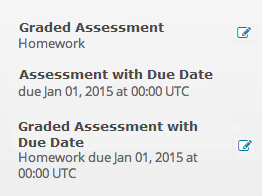![]()
WELCOME TO PREDICTIVE ANALYTICS
This page will guide you through the course syllabus and provide important information related to this course. In the seven weeks (six weeks of content, one week break during last week of December) of this course on Predictive Analytics; you will understand how predictive analytics tools can be used to analyze real-life business problems such as prediction, classification and discrete choice problems. The focus will be on case-based practical problem-solving using predictive analytics techniques to interpret model outputs. The challenges, important concepts and other relevant content will be delivered through videos and reading materials. And finally, your understanding of the course material will be assessed in the quiz sections.
PREREQUISITES
Advanced Statistical Concepts: Descriptive statistics, Probability Distribution, Hypothesis testing, ANOVA
Software Requisites: SPSS / SAS / STATA.

COURSE AGENDA
| Week | Section Name | Topics Covered | Start Date |
|---|---|---|---|
| 1 | Introduction to Analytics |
|
25-11-2015 |
| 2 |
Simple Linear Regression (SLR) |
|
2-12-2015 |
| 3 | Multiple Linear Regression (MLR) |
|
9-12-2015 |
| 4 | Logistic Regression |
|
16-12-2015 |
| 5 | Decision Trees and Unstructured data analysis |
|
30-12-2015 |
| 6 | Forecasting and Time series Analysis |
|
6-1-2016 |

TIME COMMITMENT
Course Length:
- 7 Weeks (6 weeks of content, 1 week of break)
- Each week is released across the globe on Wednesday, 03:30 am(UTC).
Weekly Commitment
GRADING
Grading Scheme
The course follows a continuous assignment scheme. There are 5 exercises between week 2 and 6.
Each week has 10 graded assignments in two variants: 5 concept-related and 5 case-related. Mid-term and final assessment will be conducted at the end of fourth and sixth week.Final score will be evaluated based on the assignments and exams.
Note: The ungraded assessments are interspersed throughout the course to recall what you have learnt so far. These do not count for final assessments.
Grading Policy
| Week | Weightage (%) | Assignment (or Question Format) | Due Date |
|---|---|---|---|
| 1 | 0% | No assignments in week one | NA |
| 2 | 10% |
|
30 Dec 2015 (03:30 UTC) |
| 3 | 10% |
|
30 Dec 2015 (03:30 UTC) |
| 4 | 10% |
|
30 Dec 2015 (03:30 UTC) |
| Mid-term | 25% |
Multiple choice questions on concept and applications (Week 1 to Week 4 contents) |
31 Dec 2015 (03:30 UTC) |
| 5 | 10% |
|
13 Jan 2016 (03:30 UTC) |
| 6 | 10% |
|
13 Jan 2016 (03:30 UTC) |
| Final | 25% |
Multiple choice questions on concept and applications (Week 5 and Week 6 contents) |
19 Jan 2016 (03:30 UTC) |
Certification
You will need to get a total mark of 50% or higher to earn a completion certificate.
Click the Predictive Analytics course enrollment page to pursue a verified certificate.
To know more about the types of certificates offered in edX, visit Student FAQs (CERTIFICATES & CREDITS section) on the edX website.

ASSESSMENTS
All our courses include both graded and un-graded assessments. The un-graded assessments contain practice questions that will test your understanding of the concepts presented in the course.
The score that you receive in the weekly-graded assessments count towards your final course grade.
Graded Assessments Instructions
Graded assessments may also have due dates, or the last possible time you can submit an assignment. Once the due date has passed, you cannot receive credit for any incomplete problems in the assignment.
Some graded assignments do not have due dates, and some assignments with due dates are not graded. If an assignment has a due date, the due date appears under the learning sequence name in the course accordion. If an assignment is graded, the name of the assignment appears under the name of the learning sequence, and a blue alarm clock appears next to the learning sequence name in the course accordion.
The image below shows an example of three different assignments. In this example, both first and last assignments are graded, but only the last assignment has a due date.

For each week, you will be provided with 10 questions excluding exams (mid-term and final).
Please ensure the following:
- Click the Save button to save your answer. These answers will not be graded at this stage.
- Click the Check button at the end of every question to record your choice and get your answer graded.
Note:
- You need an overall score 50% to pass the assessment and receive the course completion certificate.
- Please check the number of attempts specified for each assessment.

DISCUSSION
All registered participants of a MOOC on edX will have access to a course-specific online discussion forum. Participation in such forums is encouraged because it contributes significantly in the form of peer learning. Discussion forums are commonly used in online courses to provide learners an opportunity to reflect on, discuss and share knowledge gained from the online content. Participation in these forums is strongly encouraged by the course staff.
Download the IIMBx Discussion Forum Guidelines PDF for more information.
GETTING HELP
For course-related questions, use the discussion forums.
For general edX-related queries, visit Student FAQs on the edX website.
For any technical issues, use the Help button on edX course page (screenshot attached below).


FOLLOW US
Follow us on Twitter: @iimbxonline
On Facebook: iimbxonline

